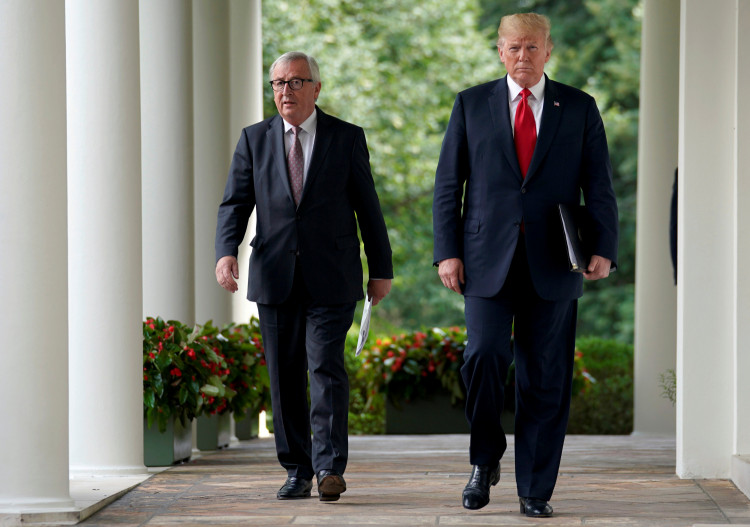The United States and European Union are headed towards a new round of trade talks but some experts doubt there will be significant progress as both sides have shown early signs of disparity in terms of priorities.
According to Business Insider, earlier discussions indicated that upcoming trade talks between the United States and the EU may not result in a sure compromise. A truce was struck in July but a settlement has yet to be reached.
A former Pentagon official and now leader of the Europe Program at the Center of Strategic International Studies, Rachel Ellehuus said of the dilemma, "Successful negotiations are far from guaranteed. The US and EU have different negotiating priorities."
European officials are against the agenda proposal of the U.S. government to discuss further access for American providers in Europe's energy and agricultural markets. While the U.S. delegation is keen on negotiating this matter, EU officials seem adamant.
Last month, European Trade Commissioner Cecilia Malmström said, "We have been very clear that from the EU side that we will not discuss agriculture."
The EU delegation has a completely different agenda on their part. They are expected to discuss industrial barriers in hopes of getting the U.S. to ease on trade policies. This agenda is in line with U.S. tariffs laid out on European aluminum and steel products.
Senior Research Fellow at the Center for European Reform, Sam Lowe, explained that the European Union seeks to discuss the matter to avoid the trade dispute from escalating further. However, some experts fear what could happen next after investigations on Section 232 wrap up. The investigation aims to determine whether cars have a negative impact on national security.
Auto tariffs are expected to cause further decline in global growth this year. If U.S. President Donald Trump's tariff threats on the European car industry take place, international supply chains could be hampered, economists pointed out.
Meanwhile, economic experts continue to discuss the U.S. president's trade war initiatives against some of its most reliable trade allies, including the EU, Mexico, and Canada. While these countries have retaliated against the world's largest economy, experts are worried about the impact of Trump's tariffs on the global market.
According to Bloomberg, Trump's tariffs on Chinese and European goods have opened opportunities for some countries, including Vietnam. However, the move has reportedly hurt some American companies including Harley-Davidson and Caterpillar.
Aside from slapping tariffs on European and Chinese goods, Trump has previously threatened to pull his country out of the World Trade Organization (WTO) but so far, no further statements were given on this matter.





